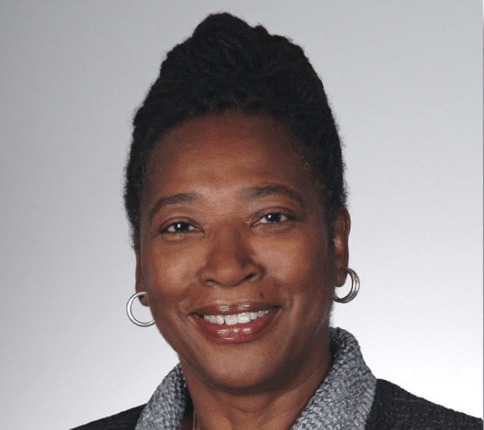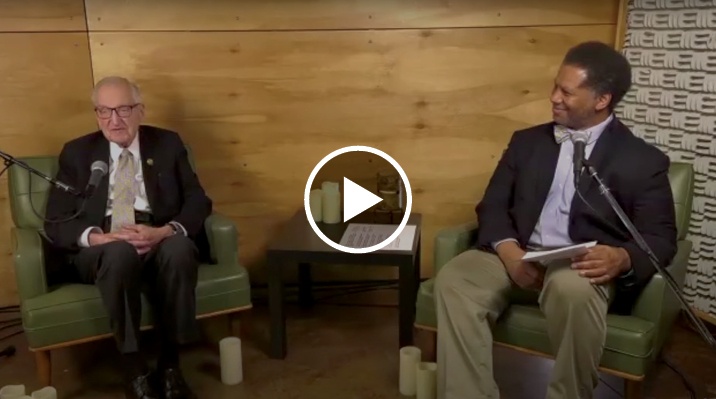The Cancer History Project is focusing on health equity and the evolution of ethics in clinical trial research during the month of May.
The following videos highlight the work of Ida J. Spruill, who worked with the African American Sea Island community on cancer disparities research, and Walter Lawrence, the founding director of VCU Massey Cancer Center, who was an honorary member of the Society of Black American Surgeons.
A growing archive of articles relating to health equity is available here.


- Video: Remembering Ida J. Spruill: A pioneer in cancer health disparities research
By MUSC Hollings Cancer Center | Feb. 1, 2021
Ida J. Spruill, PhD, was a researcher at the Medical University of South Carolina who touched the lives of many through her important research in the Sea Island community. This community is a unique group of African Americans who are known for preserving more of their cultural heritage than any other group of African Americans in the U.S. The group is important to cancer research because it is uniquely positioned to allow genetic studies of complex diseases such as hormone-related cancer.
Spruill was successful in working with the Sea Island community to gain their trust and participation in cancer disparities research. She was known for her devotion to the community and for keeping them informed of research findings.
Spruill passed away in 2016, but her legacy continues. In this video, her colleagues remember her notable contributions and how her work is being continued today at MUSC Hollings Cancer Center.
For more information about Spruill’s legacy, check out this additional video featuring interviews with her family, friends and colleagues.


- Video: Walter Lawrence, 95, reflects on the National Cancer Act, social justice, and COVID-19
By The Cancer Letter | Aug. 7, 2020
Walter Lawrence has combined scientific vision with walking the walk for social justice, advocating for enrolling minority patients in clinical trials, mentoring young Black oncologists, and—at a time when the American Medical Association refused to take a stand against racism—attending the Society of Black Academic Surgeons, a group of distinguished surgeons that made him an honorary member.
In fact, Lawrence had resigned from the Southern Surgical Association in protest against that organization’s refusal to admit LaSalle Leffall, Jr., a Black surgeon. Lawrence rejoined the association years later, only after Leffall was admitted.
The 50th anniversary of the National Cancer Act—a document signed on Dec. 23, 1971—comes at a time when science and health equity have become inseparable. Walter Lawrence was ahead of his time, and now, with the world catching up, The Cancer Letter invited Lawrence to reflect on the past half-century of pursuit of truth and justice.
Lawrence died Nov. 9, 2021, at 96. An obituary appears here.


- Black History Month panel: “We need to talk about justice”
By the Cancer History Project | Feb. 25, 2022
A panel convened by the Cancer History Project for Black History Month started with a discussion of mentorship, and concluded with a big underlying concept—justice.


The panel, which met Feb. 23, 2022, included:
- Robert A. Winn, MD
Guest editor, Cancer History Project;
Director and Lipman Chair in Oncology, VCU Massey Cancer Center;
Senior associate dean for cancer innovation and professor of pulmonary disease and critical care medicine, VCU School of Medicine - Otis W. Brawley, MD
Co-editor, Cancer History Project;
Bloomberg Distinguished Professor of Oncology and Epidemiology, Johns Hopkins University - Edith P. Mitchell, MD
Member, President’s Cancer Panel;
Clinical professor of medicine and medical oncology,
Department of Medical Oncology;
Director, Center to Eliminate Cancer Disparities;
Associate director, diversity affairs;
Sidney Kimmel Cancer Center at Jefferson, Thomas Jefferson University - John H. Stewart, MD, MBA
Professor of surgery, Section of Surgical Oncology;
Founding director, LSU Health/LCMC Health Cancer Center
Words matter, Mitchell said, focusing on the oft-used euphemistic expression “implicit bias.”
“There’s no such thing as ‘implicit bias.’ If somebody can look at you and based on your color or your gender or some other aspect—that’s not implicit. That’s racism,” Mitchell said.
“It is well recognized that Black patients in a majority situation receive fewer minutes during a clinical consultation than white patients. That’s not implicit. That is a person making a decision based on other attributes of the patient’s physique—the color, maybe even what they’re wearing, how they speak, and other facets that are related to the individual patient,” she said.
This discussion was part of the Cancer History Project panel series. All past panels are available here.
Reflecting on #ASCO21
- Let’s Close the Gap: #ASCO21 Research Addresses Disparities in Lung Cancer Screening
By ASCO | May 11, 2022
Originally published July 9, 2021
Coral Olazagasti, MD, and Nagashree Seetharamu, MD, MBBS
Lung cancer remains the leading cause of cancer death worldwide. It carries a 5-year overall survival rate of less than 20%, mainly resulting from the often advanced stage at diagnosis. Lung cancer screening guidelines were implemented by the National Comprehensive Cancer Network (NCCN) and the U.S. Preventive Services Task Force (USPSTF) in 2011 and 2013, respectively, after landmark clinical trials, such as the National Lung Screening Trial and The Dutch–Belgian Randomized Lung Cancer Screening Trial, showed earlier diagnosis and decreased mortality rates with low-dose CT (LDCT) as a screening modality.
Despite these recommendations, lung cancer screening remains vastly underused to date, with less than 20% of the high-risk eligible population undergoing lung cancer screening. Low rates of lung cancer screening are even more noticeable among underserved populations. Herein, we discuss three abstracts from the 2021 ASCO Annual Meeting that address disparities in lung cancer screening, including an abstract we coauthored.
This column features the latest posts to the Cancer History Project by our growing list of contributors.
The Cancer History Project is a free, web-based, collaborative resource intended to mark the 50th anniversary of the National Cancer Act and designed to continue in perpetuity. The objective is to assemble a robust collection of historical documents and make them freely available.
Access to the Cancer History Project is open to the public at CancerHistoryProject.com. You can also follow us on Twitter at @CancerHistProj, or follow our podcast.
Is your institution a contributor to the Cancer History Project? Eligible institutions include cancer centers, advocacy groups, professional societies, pharmaceutical companies, and key organizations in oncology.
To apply to become a contributor, please contact admin@cancerhistoryproject.com.











